via Governor of Guam: Eddie Calvo
May 26, 2012 by admin
Filed under EthicAndEtiquette
GoodStuff:
Policy Speech on Federal Unfunded Mandates, Practical Considerations of U.S. Government Policy on Guam
Delivered in Okinawa
By Guam Governor Eddie Baza Calvo
May 22, 2012
Hafa adai and thank you for inviting me today,
Guam has a long tradition of military service … so much so that our sons and daughters have the highest enlistment rate in the United States. Since the Second World War, that generation of Guamanians passed down to the generation of today an unwavering patriotism and support for what the United States represents. Since then, we, like Okinawa, have hosted a large U.S. military presence. Okinawa accounts for less than 1% of the total area of Japan, yet 18% of your island is occupied by the U.S. military… and you host 75% of all the U.S. troops in the country. Similarly, on Guam, one-third of our island is owned and occupied by the U.S. military.
Okinawa has done much to focus attention on the heavy burden that it has had to bear to support such a large U.S. military presence. Guam has always welcomed the U.S. military .
Yet today, as our two islands move in opposite directions in their relationships with the U.S. military, recent events have marked a stark contrast in how our national governments view their relationships with each of us. The Noda Government and the Diet have continued their entreaties to the people of Okinawa in return for the sacrifices you make as you bear the bulk of the burden of the Security Treaty between the United States and Japan. The government of Japan is finally understanding your frustrations and reaching out to you. Your sovereign is helping you to build your infrastructure and to expand your tourism industry, not just to allay the impact of the treaty, but to help your economy grow.
Yet, on the other side of the Philippine Sea, on Guam, there is a certain irony in that, until recent, the only assurances we had that our infrastructure would be improved to absorb the military buildup came from Japan. Now that the number of Marines coming to Guam has been reduced, and the financial commitments of both countries have been adjusted, what was once certain has now become uncertain and ambiguous. We on Guam are left wondering whether anyone, even our own sovereign, will give Guam the practical financial offsets it needs to absorb the impact of the coming troops.
While the government of Japan is offering you assistance with your economy as you seek to reduce the U.S. presence of troops in Okinawa, we have to petition our federal government to do the same as it seeks to increase the U.S. presence of troops on Guam.
Our commitment to our sovereign is undiminished. Yet, I can’t help but question our sovereign’s commitment to us when it has unfairly treated us in the past and even today saddles us with severe unfunded federal mandates. Despite this, it has been slow to grant us the economic tools we need to improve our economy ourselves. Okinawa has made clear to Tokyo its feelings about how you have been unfairly treated in the past. Guam is also trying to make its voice heard in Washington, D.C.
Because we are less than a State, the U.S. government has often ignored the impact of some of its national decisions on us. As the most prominent example, over 25 years ago the United States signed a compact of free association with several Micronesian countries that created the most liberal immigration policy in recent memory. That compact promised to improve the economies of these Micronesian countries so they could be self-sustaining members of the global community. Instead, it created a rush of migration to Guam, without any significant assistance from our federal government to help us absorb the cost of this massive migration.
Guam belongs to a brotherhood of Pacific Islands, and we are a welcoming people. But when the unreimbursed cost of helping the migrants with public housing, public welfare, employment programs, education, and medical care exceeds 15% of our local government revenues, we can’t help but be angered. And this is not anger aimed at our island brothers and sisters, but at a national sovereign who fails to recognize the practical implications of its unmet obligations. How can any local government survive a 15% drain of its local revenues? How would Okinawa feel, how would it fare, if Tokyo imposed an immigration policy that immediately drained 15% of your local government revenues?
Our public programs are falling short in providing services to our residents because of this immigration policy. Instead of providing Guam with the corresponding funds to offset this impact, the U.S. government limits what we receive for federal social programs far below what it provides to every other State in the nation on a per-capita basis. And as we struggle to provide basic public services because of the federal burdens placed on us, , the U.S. government sues us for not providing such basic services as trash collection and disposal, water and waste water treatment, mental health care, and even housing prison inmates. This has forced us to borrow hundreds of millions of dollars, over a billion dollars in total, to meet the U.S. government’s demand on what is a minimally acceptable level of service for our people.
We, like you, have gone to our federal government asking it to treat us fairly… Asking it to help us absorb the cost of these federal mandates and immigration policies that drain so much of our local revenues. For over a decade, our pleas have fallen on deaf ears. Now we are being asked to absorb the additional cost of the U.S. Marines coming from Okinawa. You will understand the skepticism that I have when I am being told by the same government not to worry… to trust it to take care of the cost and the impact of the buildup. This is the same government that has ignored the financial impact of its previous mandates… that reduced our federal benefits to a fraction of what other citizens of the United States receive. My skepticism is such that I must tell you that I had more confidence in Japan’s commitment to help us improve our infrastructure than I have now in our own government.
But, still, we are a patriotic people. We love our country, and we are proud to be Americans. We are proud to play a role in preserving the security of our country, Japan, Asia and even the world. We just need our government to listen to our pleas to treat us fairly, as your government has begun to listen to your pleas.
As this buildup moves forward and you transition your economy to one less reliant on the U.S. military, we are transitioning ours to one that considers increased military spending. There are limitless opportunities between our communities.
Our sovereigns may have complete control over this buildup, but our economy is mature enough to ensure the viability of our island, if our government would let us control our own destiny.
Last summer, I testified before our U.S. Congress, and last week I wrote a letter to our President, asking them to help us by allowing us to help ourselves. Since taking office last year, I and my administration have worked unceasingly in trying to get our government to approve a China visa waiver program. This will allow Chinese visitors to come to Guam visa-free so that we can expand our tourism industry. So it was with great interest that I observed the Japan government’s efforts to help Okinawa expand its tourism industry by approving a multiple-entry China visa for Okinawa. Yet, on Guam, we continue to wait for our government to take action… To give us the opportunity to improve our economy ourselves. If we have to continue to absorb the cost of the existing unfunded federal mandates, and if we have to absorb the cost of the military buildup, we at least have a fighting chance with tourism.
As I have done in earlier trade missions to other parts of Asia, I am here to encourage all Okinawans, Japanese, Chinese, Koreans, Taiwanese, Russians, and everyone else in Asia, to visit our shores. I know that some will see Guam and Okinawa as competitors in the same tourism market. I prefer to see us as kin, sharing a common bond and a common aspiration. Sharing common experiences and frustrations with our respective national government. Sharing a similar history of an independent people who were first colonized and then incorporated into another nation. Sharing a similar identity of a people who are part of a larger country, yet who even after hundreds of years, still have a unique language and culture that distinguishes us from our parent country. On Guam, instead of saying “Welcome” we say “Hafa Adai.” In Okinawa, instead of saying “Yokoso” you say “Mensore.” We are an island culture – you are an island culture. There is something in being an islander that I think makes us more welcoming – maybe it’s the year-round sun and the sand that makes a people friendlier.
We have a lot in common, and perhaps that is what makes the economic potential between our communities so great. The geopolitical importance we’ve shared for the past half-a-century, though on separate sides of the Philippine Sea, can help shape a relationship and a mutual understanding of where we can go. We should seize this day as two communities who have been subjects of a sovereign, and who are proving to the world that we can build futures more reliant on what we can do for ourselves than what our national governments can do for us.
Thank you so much for your hospitality and for your time today. This will go down as one of the most memorable days of my tenure.




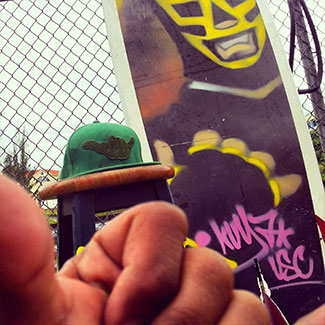
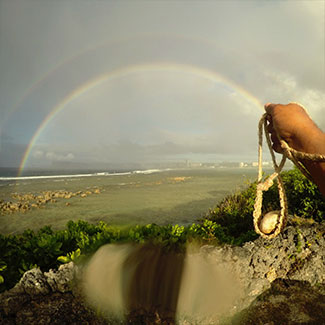
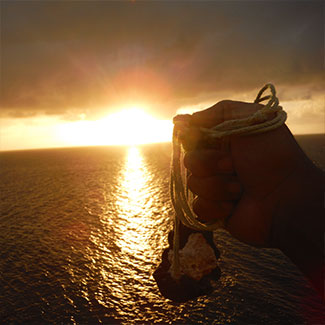
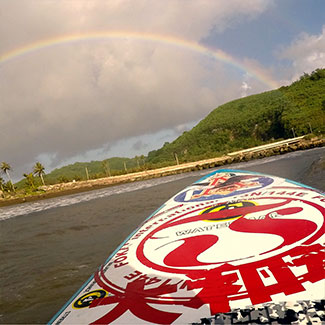
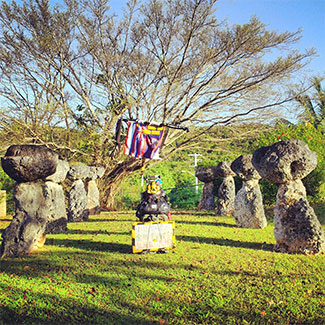
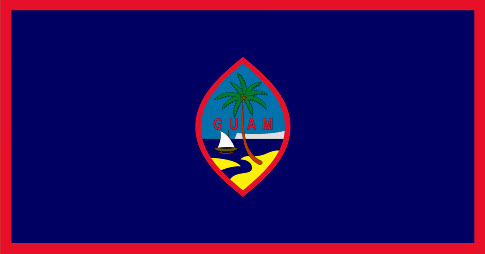
Comments
a penny for your two cents
and oh, if you want a pic to show with your comment, go get a gravatar!